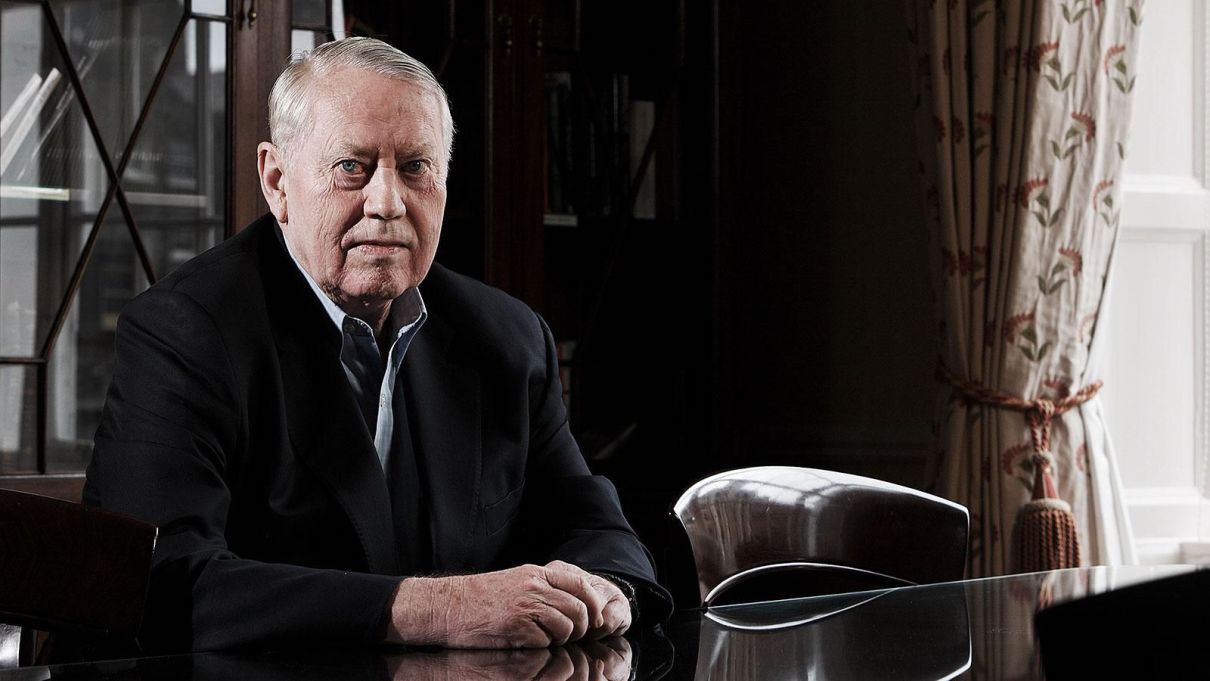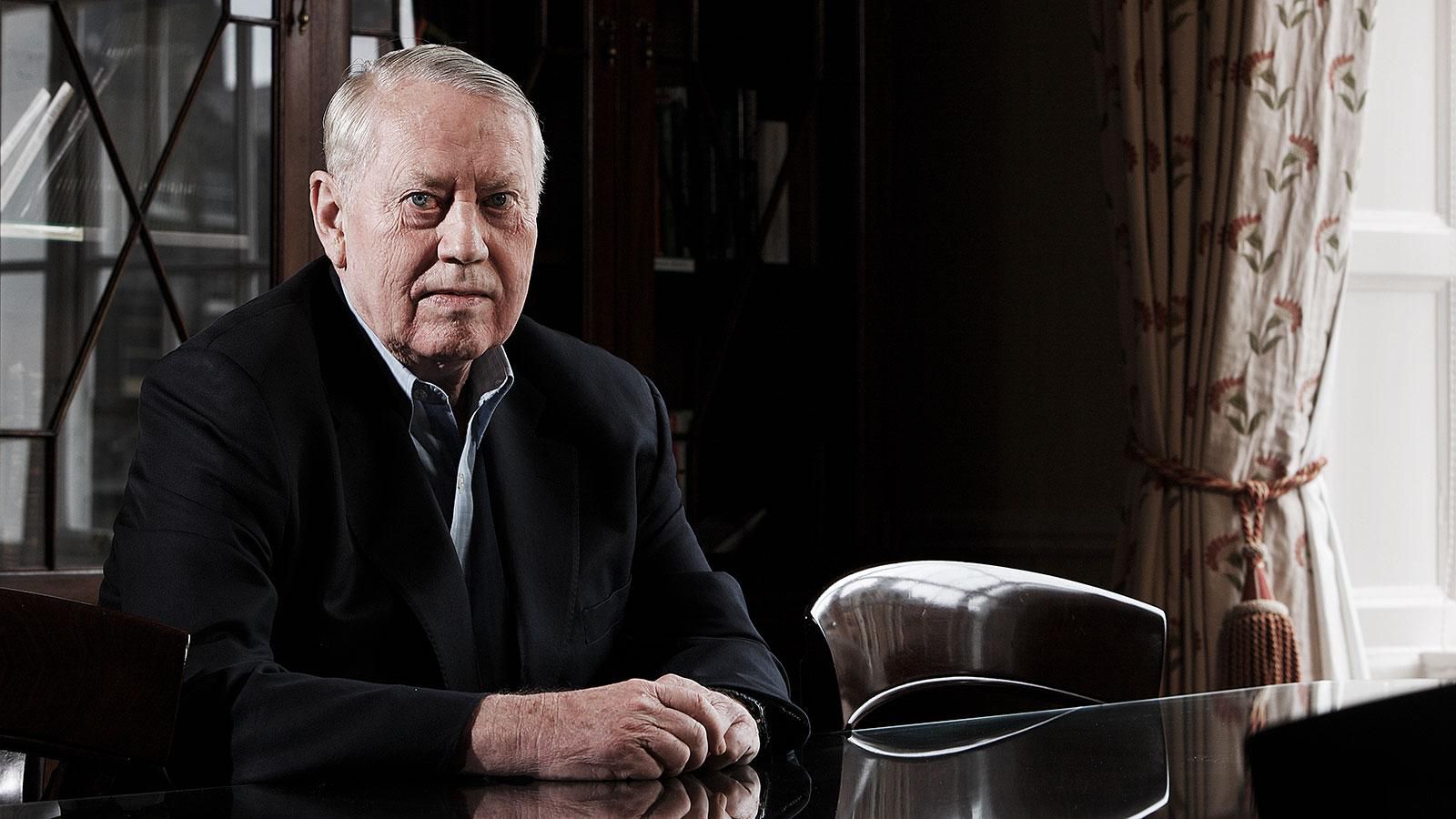The Billionaire Who Gave It All Away

Chuck Feeney achieved his goal of giving away US$8bn during his lifetime. But will it inspire others? A philanthropic adviser weighs in.

Chuck Feeney made headlines last week when his foundation, Atlantic Philanthropies, finally achieved its goal to spend its entire US$8bn on endowments to universities and charities. The 89-year-old Irish-American mogul's generosity famously inspired Bill Gates and Warren Buffett to establish the Giving Pledge, under which the world’s wealthiest promise to give away at least half their fortune to philanthropic causes.
Gates credited Feeney with creating a blueprint for other donors to follow. “I remember meeting him before starting the Giving Pledge,” said Gates. “He told me we should encourage people not to give just 50 percent but as much as possible during their lifetime. No one is a better example of that than Chuck.”
More philanthropists are certainly looking at seeing the effect of their philanthropy whilst they are alive, however giving it all away it is not common, that is why it makes news. Feeney was a pioneer who inspired others but also a unique individual, who lived frugally and had no desire for money or recognition. Andrew Carnegie is always used as the example for giving whilst living - he gave away around 90 percent of his fortune away whilst living and changed his reputation beyond all recognition. Feeney deserves to be recognised alongside him (although he would probably hate it). However Carnegie also died in 1919, so with Feeney still going we are looking at one every hundred years so I am not sure we can point to a trend.
That said, the pressure from society is asking why not give now? I think Covid has helped to bolster this stance, after all if you are saving a rainy day fund, a global pandemic bringing economies to a stop appears to be that rainy day.
Then there is still the challenge that billionaires giving it away into their own Foundations does not mean that the funds have ‘hit the ground’ in social impact, rather, assets have just moved ultimate ownership. In defence, the classic in perpetuity Foundation model is being questioned and high profile givers such as Bill and Melinda Gates or Warren Buffet have all put spending time limits on their gifts. (Bill & Melinda Gates Foundation has to spend out 20 years after their death, Buffett's gifts to Gates have to be spent within 10 years of his death).
There is also a solid case for and need for longer term support and giving that only in perpetuity funders can provide (e.g. some problems take a really long time to solve - such as medical research or giving a voice to the oppressed) - it can be a complicated business.
However, some other great examples exist of those not following this pattern - Mackenzie Bezos’ recent sharing of where she has disbursed US$1.7bn, letting everyone know that she has supported 116 organisations and plans to give away the majority of her wealth in her lifetime was refreshing in reminding the easiest way to learn is to do.
Reflecting this, Forbes has changed its scoring for its philanthropy 400 to reflect money actually given by those foundations and/or directly by Billionaires. Despite 74 billionaires on the 400 having signed the giving pledge they could only point to 10 of the 400 or 2.5 percent who had given more than 20% or more of their wealth. [The new methodology was inspired by Global Citizen’s Give While You Live campaign, launched in January to encourage the world’s more than 2,000 billionaires to donate 5 percent of their wealth annually to end poverty and uplift communities globally.]
Anonymity in philanthropy is still a good option for many, both for religious reasons and also to manage expectations or protect reputations. Indeed, some of the most high profile philanthropists run anonymous gifts alongside their programs to enable experimentation, or protect their recipients from harm. Examples include George Soros’s Open Society Foundation (working in hostile environments) or The Gates Foundation (likely to avoid raising expectations amongst recipients(!) but also to engage in challenging issues). However more people are seeing the advantage not just for them but their causes of not being anonymous - their reputation and profile can bring others to the cause.
A taxing question
A question coming up is how democratic is it that billionaires get to give it away and decide what is or isn’t a deserving cause. Atlantic Philanthropies was a tough funder, achieving lots but also clear what they wouldn’t and would fund and changing course abruptly if targets weren’t met. They changed agendas and at one point were (alongside the much smaller One foundation) estimated to be responsible for 90 percent of not for profit funding in Ireland. As the grandson of immigrants from County Fermanagh, Northern Ireland, he donated some US$1.9bn to Irish projects and helped to found the University of Limerick, as well as helping during the peace process.
Chuck Feeney didn’t like paying tax. He had an early business in Lichtenstein, incorporating his holding company in Bermuda and listing it under the name of his then wife Danielle, a French citizen, despite gaining no personal advantage in his later years. Obviously the argument is that this meant it could give more money away so he is a hero. But there is the simple question - is this a society positive? If he had paid tax, millions would have been helped based on the democratic will of governments, instead he has had a fantastic impact in and only in the areas he wanted. He decided that those rules were not for him, and luckily he was a benevolent funder.
Peter Cafferkey is CEO and Founder of Boncerto – a social good consultancy working with individuals, corporations and not-for-profits to help increase their effectiveness and enable them to do good, better. He is also the UK and Ireland representative for the European Venture Philanthropy Association, a lively community of organisations sharing the same vision and a common goal: creating positive societal impact through venture philanthropy.








